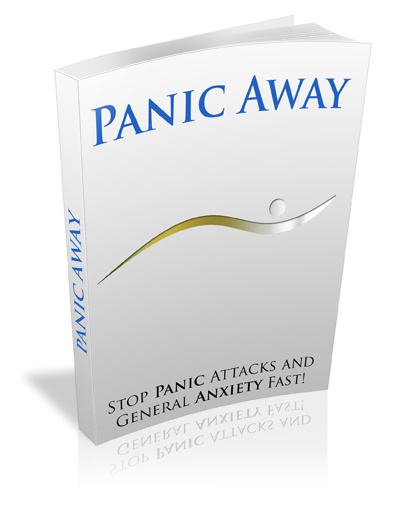Have you ever felt overwhelmed by anxiety? That relentless knot in your stomach, the racing thoughts, and the constant sense of unease. I know that feeling all too well. My name is [Your Name], and I've struggled with anxiety for most of my life. It has affected my relationships, my work, and my overall well-being. But I've also found a powerful tool that has helped me regain control and find a sense of calm amidst the chaos: music therapy playlists for anxiety control.
Music therapy has been a game-changer in my journey towards managing anxiety. It's not just about listening to any music; it's about curating playlists specifically designed to soothe the mind and provide a sense of relief. These playlists have become my refuge, my safe haven from the storm of anxiety.
Our Top Pick For Beating Panic Attacks

Stopping, and preventing, panic attacks is now even easier.
Imagine being able to press play and instantly feel a wave of calm wash over you. Music has a unique ability to speak to our emotions and transport us to a place of tranquility. It taps into the deepest parts of our psyche, helping us navigate through the turbulent waters of anxiety.
Key Takeaways:
- Anxiety can be overwhelming, affecting various aspects of our lives.
- Music therapy playlists are specifically curated for anxiety control.
- These playlists provide a sense of calm and relief amidst the chaos of anxiety.
- Music taps into our emotions and helps us find a place of tranquility.
- Curating personalized music therapy playlists can be a powerful tool for managing anxiety.
Understanding Anxiety and Its Effects
Anxiety is a natural human response to uncertain or threatening situations. It is our body's way of preparing us to face potential dangers and challenges. While a certain level of anxiety can be helpful and motivate us to take action, excessive and prolonged anxiety can have negative effects on our physical health and emotional well-being.
When anxiety is present, our heart rate increases, our breathing becomes shallow and rapid, and our muscles may tense up. These physiological changes are part of the body's stress response, also known as the “fight-or-flight” response. While it is a natural mechanism that has helped humans survive throughout evolution, chronic activation of this response can have detrimental effects on our overall well-being.
Anxiety can affect various aspects of our lives, including our ability to concentrate, sleep, and perform daily activities. It can create a constant sense of unease, making it difficult for us to enjoy life's simple pleasures and find emotional balance. Furthermore, the negative impact of anxiety extends beyond our emotional state and can manifest in physical symptoms such as headaches, stomachaches, and muscle tension.
“Music therapy has been observed to have a positive impact on anxiety by providing a sense of comfort and emotional balance.”
Music therapy, which involves the use of music and musical activities to promote healing and improve well-being, has been found to be an effective approach in managing anxiety. The power of music lies in its ability to tap into our emotions and influence our physiological responses. Listening to music can help reduce stress levels, promote relaxation, and provide a sense of comfort and emotional support.
A study published in the Journal of Advanced Nursing found that listening to music can lower anxiety levels and reduce the perception of pain in patients undergoing various medical procedures. It has also been observed that music can help regulate heart rate, blood pressure, and respiratory rate, promoting a state of calmness and relaxation.
Listening to music can serve as a distraction from anxious thoughts and rumination, allowing us to shift our focus and find solace in the beautiful melodies and harmonies. The rhythmic patterns and repetitive nature of music can have a soothing effect on our nervous system, helping to restore balance and promote emotional well-being.
By incorporating music therapy into our lives, we can harness the power of music to alleviate anxiety and achieve a greater sense of emotional balance. Whether it's through actively engaging in creative musical activities or simply enjoying a curated playlist of calming and soothing tunes, music therapy offers a natural and enjoyable approach to managing anxiety and improving our overall well-being.
The Impact of Music in Guided Imagery Sessions
Music therapists often use guided imagery sessions to help individuals explore their emotions and find comfort. In these sessions, specially selected music is played, and the client is invited to describe their feelings and the images that the music evokes. This process can provide valuable insights and help individuals become more aware of how music affects their emotions. It can also be a means of exploring past experiences and finding a sense of comfort and security.
Guided imagery sessions, combined with music therapy, create a powerful experience that engages both the mind and the senses. By using music as a tool for exploration, music therapists can tap into the deep connections between sound, emotion, and memory. The music acts as a catalyst, triggering emotions and memories that may have been suppressed or forgotten.
During a guided imagery session, the music therapist carefully selects songs or compositions that align with the individual's emotional needs and goals. The music becomes a soundtrack for the exploration of thoughts, feelings, and sensations. It creates a safe and supportive space for the individual to delve into their inner world.
Through this process, individuals can gain insights into their emotions and experiences. The music acts as a conduit, allowing them to access deep-seated emotions and uncover hidden truths about themselves. The combination of guided imagery and music therapy can lead to profound self-discovery and personal growth.
Moreover, the therapeutic benefits of music in guided imagery sessions extend beyond emotional exploration. The carefully chosen music can evoke a range of emotions, from sadness and grief to joy and hope. It provides a source of comfort and solace, offering a sanctuary for individuals to process their feelings and find healing.
“Music has the power to touch our souls, unlocking emotions we never knew were there.”
In my years as a music therapist, I have witnessed the transformative impact of guided imagery sessions with music. The combination of music and imagery allows individuals to access their innermost thoughts and emotions, providing a pathway to healing and self-awareness. The insights gained through these sessions can be life-changing, bringing comfort and a deeper understanding of oneself.
Key Insights from Guided Imagery Sessions
| Insights | Emotions Explored |
|---|---|
| Awareness of past experiences | Regret, nostalgia, healing |
| Emotional triggers | Fear, anger, joy |
| Self-reflection | Sadness, contentment, gratitude |
| Exploration of inner desires | Longing, ambition, fulfillment |
| Releasing and processing emotions | Grief, relief, acceptance |
Guided imagery sessions combined with music therapy offer a unique and effective approach to emotional exploration and healing. Through the power of music, individuals can gain deep insights, process their emotions, and find comfort and solace. The combination of guided imagery and music creates a powerful therapeutic experience that can support individuals on their journey towards emotional well-being.

The Qualities of Anxiety-Reducing Music
When it comes to reducing anxiety, not all music is created equal. Research has shown that certain qualities in music have a greater impact on reducing anxiety levels. By understanding these qualities, we can curate playlists that promote relaxation and provide a sense of peace. Here are the key qualities of anxiety-reducing music:
1. Slow Tempo
A slow tempo is a significant factor in calming the mind and reducing anxiety. Music with a slower rhythm helps to slow down the heart rate and induce a sense of tranquility. The gentle pace allows the listener to unwind and find solace in the music.
2. Simple Melody
A simple melody is soothing to the ear and easier for the brain to process. Music with complex melodies can be stimulating and might not have the desired calming effect. On the other hand, a simple melody creates a sense of familiarity and comfort, providing a safe space for relaxation.
3. Predictable Beat and Harmony
Music with a predictable beat and harmony has a grounding effect on the listener. When the rhythm and harmony are consistent and predictable, it creates a feeling of stability and security. This can help to alleviate anxiety and provide a sense of control in uncertain situations.
It's important to note that the complexity of the music or the listener's familiarity with the piece are not the primary determining factors in reducing anxiety. Instead, it's the combination of a slow tempo, simple melody, and predictable beat and harmony that contribute to its calming effects.
The following table summarizes the qualities of anxiety-reducing music:
| Qualities | Description |
|---|---|
| Slow Tempo | Slower rhythm that promotes relaxation and lowers anxiety levels. |
| Simple Melody | A straightforward and uncomplicated melody that offers a sense of familiarity and comfort. |
| Predictable Beat and Harmony | A consistent and predictable rhythm and harmony that create stability and a sense of control. |
By incorporating these qualities into our music choices, we can enhance the anxiety-reducing benefits of music therapy playlists and create a more calming and soothing experience for ourselves.
Curated Music Therapy Playlists for Anxiety Control
Music therapy playlists have proven to be effective tools for anxiety control, providing a soothing and calming experience for individuals seeking relief from stress and anxiety. These curated playlists feature a diverse range of genres and styles, carefully selected to promote relaxation and serve as therapeutic aids.
Whether you prefer classical compositions, gentle pop melodies, or world music rhythms, there is a playlist available to suit your taste and meet your specific needs. These playlists incorporate anxiety relief music, calming music playlists, relaxation music for stress, and therapeutic music for anxiety, ensuring a comprehensive approach to alleviating anxiety symptoms.
By listening to these curated music therapy playlists, individuals can experience a sense of tranquility and find a moment of respite in their journey to regain emotional well-being. The carefully chosen tracks within these playlists have been thoughtfully curated to create an atmosphere of solace, providing a much-needed escape from the pressures of daily life.
“Music has the power to transport us to another realm, offering solace and healing for the soul. These curated music therapy playlists provide a haven of tranquility, awakening a sense of peace within us.”
Through the harmonious melodies and therapeutic qualities of the selected tracks, these playlists aim to provide a holistic approach to anxiety control. They can help individuals find comfort, improve mental well-being, and restore a sense of balance in their lives.
One example of a curated music therapy playlist for anxiety control includes:
| Song Title | Artist | Genre |
|---|---|---|
| 1. Moonlight Sonata | Ludwig van Beethoven | Classical |
| 2. Weightless | Marconi Union | Ambient |
| 3. Spa Relaxation | Nature Sounds | Relaxation |
| 4. Breathe | Greg Maroney | Contemporary Instrumental |
| 5. Deep Sleep | Steven Halpern | New Age |
This playlist combines the calming attributes of classical music, ambient sounds, and relaxation tracks to create a serene musical experience. Each song has been carefully chosen to provide therapeutic benefits, allowing individuals to unwind, ease anxiety, and find inner peace in the process.
By incorporating these curated music therapy playlists into your daily routine, you can harness the power of music to reduce anxiety, promote relaxation, and achieve a greater sense of well-being. Embrace the therapeutic potential of these playlists and embark on a journey of self-discovery and anxiety control.

Ambient 1: Music For Airports by Brian Eno
“Ambient 1: Music For Airports” by Brian Eno is a mesmerizing soundscape that creates a unique musical experience. Designed to echo the rhythm of our physiological functions, this album offers a soothing and calming effect. The slow tempo of the music allows for a state of attunement and relaxation, making it an ideal choice for anxiety relief.
When listening to “Music For Airports,” one can immerse themselves in a tranquil soundscape that transcends the boundaries of conventional music. Brian Eno's pioneering work in ambient music captures the essence of stillness and contemplation, enabling listeners to find solace in its gentle melodies and atmospheric textures.
Pieds-en-L'Air, from Capriol Suite, by Peter Warlock
Pieds-en-L'Air is a slow classical piece from Peter Warlock's Capriol Suite. The gentle melody of this piece evokes a sense of nostalgia, reminiscent of songs from childhood. Its soft and soothing qualities make it a perfect choice for anxiety control, providing a calming and comforting experience.
Listening to Pieds-en-L'Air can transport you back to a time when life felt simpler and brought a sense of joy. Its slow tempo and delicate composition create a serene ambiance that can help alleviate anxiety and promote relaxation.
“The melody of Pieds-en-L'Air resonates with my childhood memories and brings a sense of calmness to my mind. It's like wrapping myself in a warm blanket of nostalgia.”
Whether you are seeking solace or trying to find a moment of tranquility, adding Pieds-en-L'Air to your music therapy playlist can provide a soothing experience and assist in managing anxiety.

Om Namah Shivaya by Deva Premal
I have discovered one particular track that truly stands out when it comes to inducing relaxation and creating a sense of comfort. I'm talking about “Om Namah Shivaya” by Deva Premal. This evocative chant, with its mesmerizing vocals and hypnotic music, has the power to transport you to a state of tranquility and inner peace.
When you listen to “Om Namah Shivaya,” you'll immediately notice its slow pace, which allows you to sink into a more relaxed state of mind. The repetitive nature of the chant creates a soothing rhythm that gently carries away your worries and anxieties. It's like a lullaby for your soul.
Deva Premal's rendition of “Om Namah Shivaya” is a spiritual journey in itself. The melodic simplicity and heartfelt expression in her voice make this track even more powerful. You can feel the devotion and authenticity pouring through every word and note.
“Om Namah Shivaya” holds a special place in my heart. Its evocative chants and slow pace instantly transport me to a place of stillness and serenity. It's like a musical mantra that helps me find my center and release any tension or stress. I believe it's a must-listen for anyone seeking inner peace and calmness in their lives.
This track is often used in mindfulness practices and relaxation techniques for anxiety relief. Whether you're practicing yoga, meditation, or simply looking for a moment of tranquility, “Om Namah Shivaya” can guide you towards a state of deep relaxation and emotional well-being.
| Benefits of “Om Namah Shivaya” by Deva Premal |
|---|
| Induces a sense of relaxation and calmness |
| Reduces anxiety and stress levels |
| Aids in mindfulness practices and meditation |
| Promotes emotional well-being and inner peace |
Experience the power of “Om Namah Shivaya” by Deva Premal and let its evocative chants and slow pace envelop you in a world of tranquility. Allow yourself to be carried away by the hypnotic music and find solace in the depths of your own being.

Discover the Healing Power of “Om Namah Shivaya”
If you're interested in exploring the healing potential of “Om Namah Shivaya” further, here are a few suggestions:
- Create a relaxation playlist with “Om Namah Shivaya” as the centerpiece.
- Listen to the track during your meditation or yoga practice.
- Play “Om Namah Shivaya” in the background when you're winding down before bed.
- Share the track with friends and loved ones who might benefit from its soothing effects.
Remember, music has the power to heal and soothe our souls. Let “Om Namah Shivaya” by Deva Premal guide you on a journey of self-discovery, relaxation, and emotional well-being.
Someone Like You by Adele
When it comes to emotional strength, few songs compare to “Someone Like You” by Adele. This deeply resonating ballad has touched the hearts of millions worldwide. With its slow tempo and hauntingly beautiful melody, the song offers solace and contemplation to those experiencing anxiety.
Adele's soulful vocals, accompanied by a minimalist arrangement, create a sense of calm and intimacy. The lyrics explore themes of loss and longing, yet the music itself provides a comforting and reflective atmosphere. The small, unexpected changes in the melody add a melancholic tension that can be soothing for individuals seeking solace from anxiety.
Whether you're seeking a moment of quiet reflection or a cathartic release, “Someone Like You” has the power to evoke emotions and provide a much-needed sense of calm. Allow yourself to be transported by Adele's captivating voice and find solace in the slow tempo and emotional strength of this remarkable song.

Explore the depths of “Someone Like You” by Adele and let its emotional resonance wash over you. Find comfort in the slow tempo and intimate lyrics, and embrace the power of music to soothe the soul.
I Giorni by Ludovico Einaudi
“I Giorni” by Ludovico Einaudi is a mesmerizing piano piece that transports listeners into a dreamlike state. With its repetitive motifs and steady tempo, this enchanting composition captures the essence of tranquility and peace. The gentle melody flows effortlessly, creating moments of lightness and brightness that evoke a sense of calm and serenity.
Often used in relaxation and meditation practices, “I Giorni” has the power to transport individuals into a dreamlike state, allowing them to escape the stresses of everyday life. As the repetitive motifs and steady tempo guide the listener, they can experience a sense of calmness and enter a meditative state of mind.
“With each note, Ludovico Einaudi creates a captivating journey that takes you to another realm, where time stands still, and the world fades away.”
During this musical journey, the listener is embraced by the soothing melodies and transported into a world where worries and anxieties dissolve. The repetitive motifs provide a sense of familiarity and comfort, allowing the mind to find solace in the melodies.
Listen to “I Giorni” by Ludovico Einaudi to experience the transformative power of repetitive motifs, steady tempo, and a dreamlike state.

Selected Discography of Ludovico Einaudi:
| Title | Release Year |
|---|---|
| Le Onde | 1996 |
| Divenire | 2006 |
| Nightbook | 2009 |
| In a Time Lapse | 2013 |
Discover Ludovico Einaudi's other remarkable compositions, such as “Le Onde,” “Divenire,” “Nightbook,” and “In a Time Lapse.” Each album showcases Einaudi's unique ability to craft mesmerizing melodies and transport listeners to a realm of tranquility.
In Paradisum by Gabriel Fauré
“In Paradisum” by Gabriel Fauré is a beautiful and serene piece from his Requiem. The combination of the choir and organ accompaniment creates a sense of calm and spiritual peace. This exquisite composition is often used in music therapy sessions to assist individuals in finding emotional and physical balance.
When listening to “In Paradisum,” one is transported to a place of tranquility and serenity. The soothing harmonies of the choir, accompanied by the resonant tones of the organ, create a profound sense of calm. The majestic qualities of Fauré's music invite a deep connection to the divine, providing comfort and solace in times of distress.
The In Paradisum image below perfectly captures the essence of this piece:

| Description | Details |
|---|---|
| Composer | Gabriel Fauré |
| Genre | Choral |
| Instrumentation | Choir and organ |
| Emotional Tone | Serenity and tranquility |
The serene harmonies and ethereal melodies of “In Paradisum” make it a powerful tool in music therapy. It has the ability to calm the mind, reduce stress, and bring about a sense of inner peace. Whether used in a therapeutic setting or as part of personal relaxation practices, this piece has the potential to soothe the soul and promote overall well-being.
Conclusion
Music therapy playlists are a powerful tool for anxiety relief, relaxation, and stress management. These carefully curated collections of music can provide comfort and promote emotional balance, making them an essential resource for individuals seeking relief from anxiety.
By exploring different genres and styles, individuals can create their own personalized therapeutic playlists that cater to their specific needs. Consider the qualities of anxiety-reducing music, such as a slow tempo, simple melody, and predictable beat and harmony, when curating your playlist.
Music serves as a remarkable tool for anxiety control, offering a sense of calm and tranquility. Whether through classical, pop, or world music, individuals can harness the therapeutic benefits of music to soothe their minds and find peace amidst the chaos. Incorporate music therapy playlists into your daily routine to discover the transformative effects and enhance your overall well-being.
FAQ
What is music therapy?
Music therapy is a form of therapy that uses music to address physical, emotional, cognitive, and social needs. It can help individuals manage stress, anxiety, and improve overall well-being.
How does music therapy help with anxiety?
Music therapy can help reduce anxiety levels by promoting relaxation, providing comfort, and helping individuals find emotional balance. It uses specially selected music to soothe the mind and create a sense of calm in the midst of chaos.
What qualities should I look for in anxiety-reducing music?
Anxiety-reducing music tends to have a relatively slow tempo, a simple melody, and a beat and harmony that are predictable. The complexity of the music and familiarity with the piece are considered to be less important factors.
Are there curated music therapy playlists available for anxiety control?
Yes, there are numerous music therapy playlists available that have been curated specifically for anxiety control. These playlists feature soothing sounds, calming melodies, and therapeutic music that promotes relaxation and alleviates stress.
What are some popular music therapy playlists for anxiety relief?
Some popular music therapy playlists for anxiety relief include “Ambient 1: Music For Airports” by Brian Eno, “Pieds-en-L'Air” from Peter Warlock's Capriol Suite, “Om Namah Shivaya” by Deva Premal, “Someone Like You” by Adele, “I Giorni” by Ludovico Einaudi, and “In Paradisum” by Gabriel Fauré.
How can I use music therapy playlists to manage my anxiety?
You can use music therapy playlists by listening to the selected music and allowing yourself to be immersed in the soothing sounds and calming melodies. Find a quiet and comfortable space, close your eyes, and focus on the music, letting it guide you towards relaxation and emotional well-being.
Can I create my own therapeutic playlist to manage anxiety?
Absolutely! Creating your own therapeutic playlist can be a powerful tool for managing anxiety. Consider the qualities of anxiety-reducing music and explore different genres and styles that resonate with you. Choose songs that promote relaxation, provide comfort, and help you find a sense of emotional balance.
Are there specific genres or styles of music that are more effective for anxiety relief?
Genres such as classical, soft pop, and certain types of world music tend to contain the necessary musical elements to help induce relaxation. However, it is important to choose music that you personally find soothing and calming, as individual preferences can vary.
How often should I listen to music therapy playlists for anxiety control?
The frequency of listening to music therapy playlists for anxiety control can vary from person to person. Some individuals may find it helpful to incorporate music therapy into their daily routine, while others may choose to listen whenever they feel the need for relaxation and stress relief.



